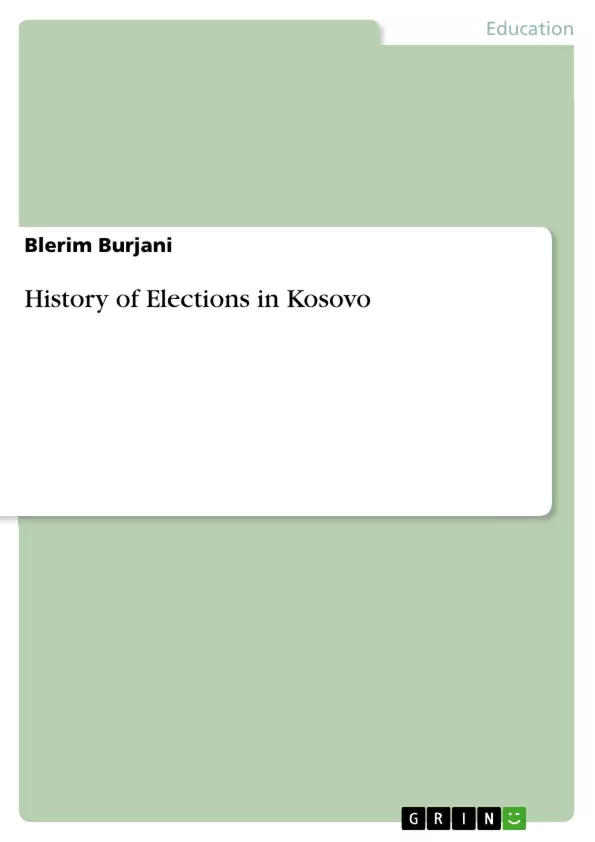After the war in Kosovo and the arrival of the International Mission - UNMIK based on UNSC Resolution 1244, his mission and all other international mechanisms, including the OSCE, were substantially committed to organizing the Kosovar society from the point of view of the beginning of the functioning of civic and institutional life, after 1999. Kosovo did not have any established institutions that would facilitate normal development of life in Kosovo.
The population of Kosovo was scattered around the world, and citizens of Kosovo were progressively returning to Kosovo, the role of the UN Mission was more or less challenging, the functional organization of UNMIK was experienced and UNMIK was assisted by the OSCE, the Council of Europe. In the absence of institutional quorum, the temporary government of Kosovo had appointed temporary mayors of the municipalities in Kosovo. This government was transformed in December 1999, UNMIK established the temporary PISG departments, the political parties had appointed representatives in these departments (PDK, LDK, LBD) up to the organization of elections at both levels.
Inhaltsverzeichnis (Table of Contents)
- Preparations for the organization of elections
- Establishment of the Political Party Consultative Forum
- Constitutional framework and seats reserved for minorities.
- List open/closed.
- What was learned from the history of the organization of elections in the state of Kosovo
- Electoral Zone
- Voting List
- Chronological history of the organization of elections the Republic of Kosovo.
- Conclusions:
Zielsetzung und Themenschwerpunkte (Objectives and Key Themes)
The text aims to provide a comprehensive overview of the history of elections in Kosovo, examining the process from the initial preparations in the aftermath of the war to the eventual establishment of the Republic of Kosovo. The text explores the critical role of international organizations, particularly UNMIK and the OSCE, in facilitating and overseeing the electoral process.
- The Role of International Organizations in Electoral Process
- Development of Democratic Institutions in Kosovo
- Electoral Reforms and Challenges
- Ethnic Composition and Representation in the Assembly
- The Influence of Proportional Representation
Zusammenfassung der Kapitel (Chapter Summaries)
The initial chapter delves into the preparations undertaken for the organization of elections in Kosovo, highlighting the establishment of the Joint Registration Task Force (JRT) to register the population and create the voting list. It outlines the formation of the Central Election Commission (CEC) and its role in regulating the electoral process, as well as the establishment of the Political Parties Consultative Forum (PPCF) for discussing the electoral system.
Schlüsselwörter (Keywords)
The text focuses on key terms such as: history of elections in Kosovo, ethnic composition, reserved seats, electoral threshold, electoral reform, UNMIK, OSCE, proportional representation, political parties, and the development of democratic institutions.
- Quote paper
- Blerim Burjani (Author), 2023, History of Elections in Kosovo, Munich, GRIN Verlag, https://www.hausarbeiten.de/document/1392274


